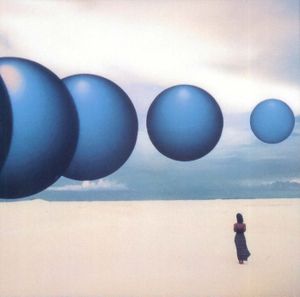July 20, 2020: Difference between revisions
From Gerald R. Lucas
m (Added cat.) |
(Added cat.) |
||
| Line 1: | Line 1: | ||
__NOTOC__{{ | __NOTOC__{{jt|title=Science Fiction Introduction Outline}} | ||
[[File:Leguin-sf.jpg|thumb]] | [[File:Leguin-sf.jpg|thumb]] | ||
Some notes for Ursula Le Guin’s Introduction to the ''Norton Book of Science Fiction''.<ref>{{cite book |last=Le Guin |first=Ursula |chapter=Introduction |date=1993 |title=Norton Book of Science Fiction |editor1-last=Le Guin |editor1-first=Ursula K. |editor2-last=Atteberry |editor2-first=Brian |url= |location=New York |publisher=W. W. Norton |pages=15–42 |isbn= |author-link= |ref=harv }}</ref> | Some notes for Ursula Le Guin’s Introduction to the ''Norton Book of Science Fiction''.<ref>{{cite book |last=Le Guin |first=Ursula |chapter=Introduction |date=1993 |title=Norton Book of Science Fiction |editor1-last=Le Guin |editor1-first=Ursula K. |editor2-last=Atteberry |editor2-first=Brian |url= |location=New York |publisher=W. W. Norton |pages=15–42 |isbn= |author-link= |ref=harv }}</ref> | ||
| Line 66: | Line 66: | ||
[[Category:Science Fiction]] | [[Category:Science Fiction]] | ||
[[Category:Notes]] | [[Category:Notes]] | ||
[[Category:Ursula K. Le Guin]] | |||
Revision as of 09:44, 30 May 2022
Science Fiction Introduction Outline
Some notes for Ursula Le Guin’s Introduction to the Norton Book of Science Fiction.[1]
1960s
- White, male (17); ethical
- change in sf - “dark mirror”
- anxiety - cold war; Viet Nam; dissidence
- increasingly explored failures, limits, ends, final things (18)
- playfulness and daring
“Hard sf” - descriptive and evaluative (18–19)
- hi-tech iconology
- strong scientific content
- solidly thought out and researched
- tough minded
- male-centered, essentialist values
- politically right or militaristic
- positive ethical values on violence
- explores implications of techno/scientific change
- rigorous, not rigid, intelligence (19)
sf
- genre (20) - popular entertainment, not literature
- descriptive - community of shared interests and expectations
- high point in tradition (21)
- stock concepts and patterns, like the future, alien beings, mad scientists, etc. (22, 26)
- formal tradition — iconology
- archetypes, "iconic mode of thought"
- undefinable?
- field
- employ assumptions basic to science, technology, and sometimes scientism (23)
- scientistic - science and technology as god/savior
- “commonly uses techniques both from the realistic and fantastic traditions of narrative to tell a story of which a referent, implicit or explicit, is the mindset, the content, or the mythos of science and technology” (23)
- science grounds, supports, and judges sf (24)
- megatext - found in the assumptions and worldview of science and technology (23-24)
- mythological - scientific and scientistic
- megatext - found in the assumptions and worldview of science and technology (23-24)
- living art: concerned with the central ideas of a society
- social and intellectual function (24)
- moral - narrative tests
- a literature of ideas (25)
- aesthetic, not independent of intellect
- plausable extrapolations from current scientific knowledge
- materialist cause and effect (26), not from the realm of the supernatural
- thought experiments
- harshly critical of science (27) cautionary
- Delany's "subjunctive reality": what has not happened (27)
- extrapolative - predictive: what has not happened, but might
- cautionary - what has not happened, yet
- alternate world - what might have happened, but didn't - divergence at the very center (28)
- realism - sf absorbs all reality, but not vice versa
- tension between sf and fantasy
- avoids the supernatural, unlike fantasy
- but they constantly overlap (29)
- realistic and rationalistic (30)
- literalization of metaphor - “absorbed in the landscape” (31)
- questions reality and the assumptions about it (31)
- open context - no authority - nothing taken for granted
- "sense of wonder"
Reference
- ↑ Le Guin, Ursula (1993). "Introduction". In Le Guin, Ursula K.; Atteberry, Brian. Norton Book of Science Fiction. New York: W. W. Norton. pp. 15–42.
